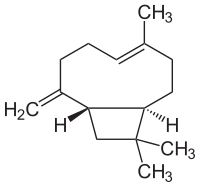
Photo from wikipedia
Liver fructose-1,6-bisphosphatase (FBPase) is a key enzyme in the gluconeogenesis pathway. Inhibiting FBPase activity represents a potential treatment for type 2 diabetes mellitus. A series of novel N-arylsulfonyl-4-arylamino-indole-2-carboxamide derivatives have… Click to show full abstract
Liver fructose-1,6-bisphosphatase (FBPase) is a key enzyme in the gluconeogenesis pathway. Inhibiting FBPase activity represents a potential treatment for type 2 diabetes mellitus. A series of novel N-arylsulfonyl-4-arylamino-indole-2-carboxamide derivatives have been disclosed as FBPase inhibitors. Through extensive structure-activity relationship investigations, a promising candidate molecule Cpd118 (sodium (7-chloro-4-((3-methoxyphenyl)amino)-1-methyl-1H-indole-2-carbonyl)((4-methoxyphenyl)sulfonyl)amide) has been identified with high inhibitory activity against human liver FBPase (IC50, 0.029±0.006 μM) and high selectivity relative to the other six AMP-binding enzymes. Importantly, Cpd118 produced significant glucose-lowering effects on both type 2 diabetic KKAy mice and ZDF rats as demonstrated by substantial reductions in the fasting and postprandial blood glucose levels, as well as the HbA1c level. Furthermore, Cpd118 elicited a favorable pharmacokinetic profile with the oral bioavailability of 99.1%. Moreover, the X-ray crystal structure of the Cpd118-FBPase complex was resolved, which revealed a unique binding mode and provided a structural basis for its high potency and selectivity.
Journal Title: Journal of medicinal chemistry
Year Published: 2020
Link to full text (if available)
Share on Social Media: Sign Up to like & get
recommendations!